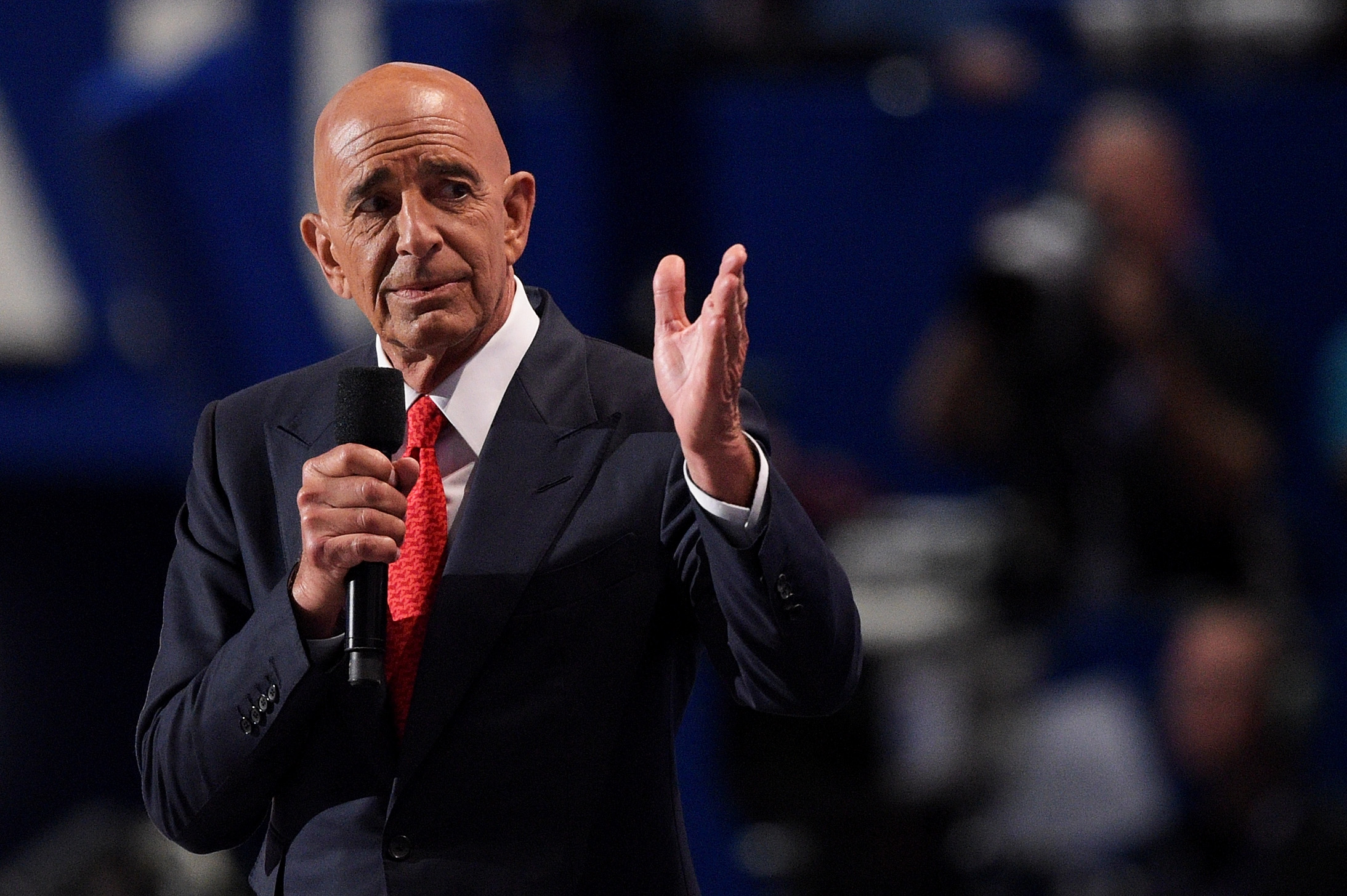Former Presidential Inaugural Committee chairman Thomas Barrack became the latest individual close to former President Donald Trump to be charged with a violation of the Foreign Agents Registration Act (FARA) on July 20.
Barrack is accused by the Department of Justice (DOJ) of illegally acting as a foreign agent of the United Arab Emirates (UAE). The federal government’s indictment alleges that he edited at least one of Trump’s 2016 campaign speeches and spoke with UAE officials about potential political appointees.
The Foreign Agents Registration Act (FARA) was passed in 1938 due to concerns of Nazi activities in the United States. It “requires certain agents of foreign principals who are engaged in political activities … to make periodic public disclosure of their relationship with the foreign principal, as well as activities, receipts and disbursements in support of those activities,” according to the Justice Department.
FARA defines political activities as “any activity that the person engaging in believes will … or … intends to … influence any agency or official of the Government of the United States or any section of the public within the United States with reference to formulating, adopting, or changing the domestic or foreign policies of the United States.”
The law requires any individual who wants to engage in political activities for the benefit of a foreign country to register and provide reports of his or her activities to the attorney general. Some foreign-owned media companies, including China’s Global Times and People’s Daily, Russia’s RT, and Qatar’s AJ+ are required to register under FARA.

CLEVELAND, OH – JULY 21: Tom Barrack, former Deputy Interior Undersecretary in the Reagan administration, delivers a speech on the fourth day of the Republican National Convention on July 21, 2016 at the Quicken Loans Arena in Cleveland, Ohio. (Photo by Jeff Swensen/Getty Images)
Barrack is not the first Trump associate to run into FARA trouble. Former 2016 campaign chairman Paul Manafort and vice chairman Rick Gates both pled guilty to conspiracy to violate FARA in connection with Special Counsel Robert Mueller’s probe into the campaign. Elliott Broidy, a top GOP fundraiser, pled guilty to illegally lobbying the DOJ to drop an investigation into embezzlement in Malaysia. The home and office of Trump’s personal attorney, Rudy Giuliani, were raided by federal agents in April in connection with an alleged FARA violation. (‘A Foreign Agent’?: Here’s Why The Feds Raided Rudy Giuliani)
Imaad Zuberi, a venture capitalist who donated to both Democrats and Republicans and hosted fundraisers for then-Vice President Joe Biden in 2012, was sentenced to 12 years in prison for FARA violations in February.
Former Assistant US Attorney and National Review contributing editor Andrew McCarthy argues that the investigation and indictment of so many Republican figures is evidence of the politicization of the DOJ.
“FARA, which requires Americans who work on behalf of foreign interests to register with DOJ as foreign agents, is not a serious crime… The Justice Department prosecuted it only seven times (and only three times successfully) in the half-century before it was pretextually used in Russiagate to probe the Trump campaign,” he wrote, following the searches of Giuliani’s apartment and office.
“The scrutiny of Giuliani under FARA bears the hallmarks of a constitutionally offensive selective prosecution of a political critic of the president,” McCarthy added.
The Office of the Inspector General (OIG) at the DOJ found in a 2016 audit that FARA non-compliance is widespread. The OIG found that 62% of FARA registrants did not comply with the timeline for applications set out in the law, and that 50% of registrants were late in filing supplemental statements. The audit noted a major drop-off in registrations in 1993, when the DOJ began mandating filing fees for registered foreign agents.
Ben Freeman, the director of the Foreign Influence Transparency Initiative at the Center for International Policy, recommends that Congress update the FARA filing process by “requiring FARA filings be submitted in an electronic, structured data format” and “establish a publicly available and easily searchable database containing this information.”
He also suggests adding civil penalties for FARA non-compliance, since those are easier than criminal penalties for prosecutors to enforce.
FARA reform is a bipartisan issue, although Congress has failed to pass legislation addressing loopholes since 2007. Following the Mueller probe, Republican Iowa Sen. Chuck Grassley and Republican Louisiana Rep. Mike Johnson introduced legislation to close loopholes, as did Republican Colorado Rep. Ken Buck and Democratic California Rep. Ro Khanna. However, neither bill passed.


